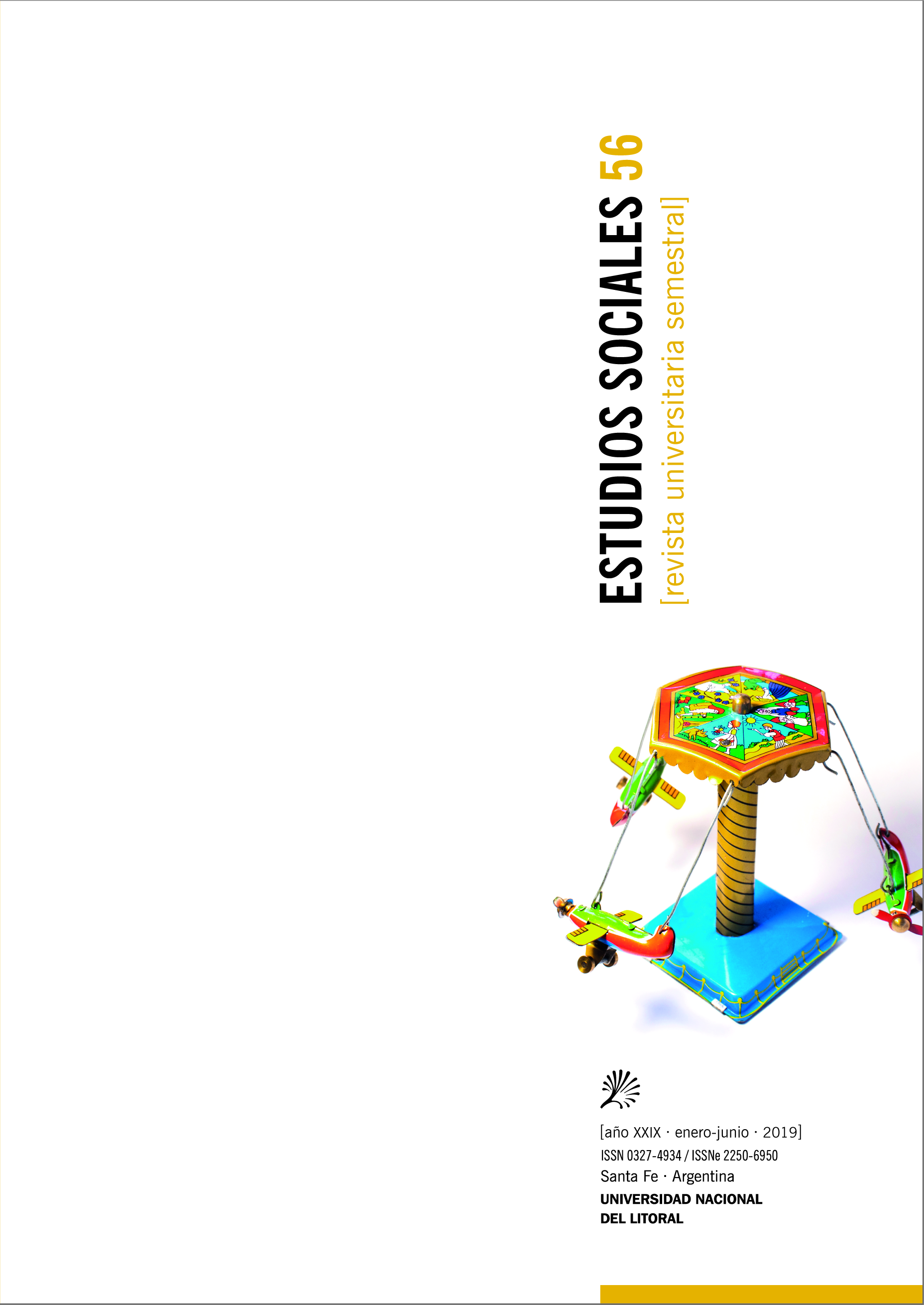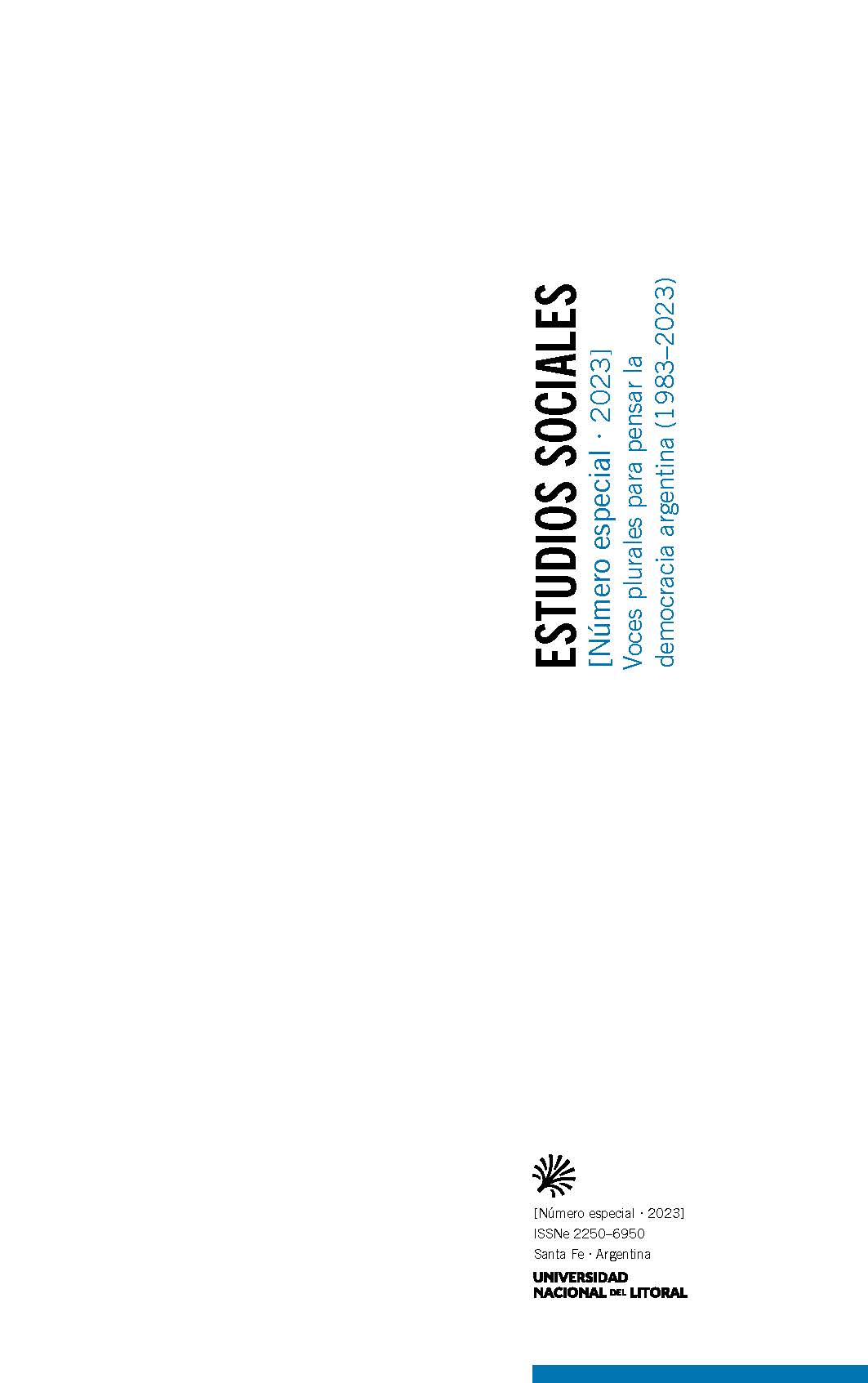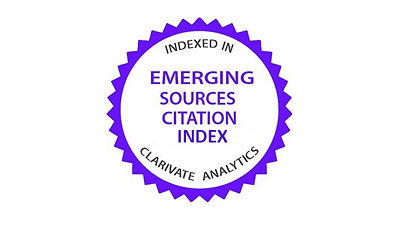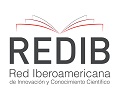Naming the unnameable. The debate concerning the concept of political religion to define the totalitarisms
DOI:
https://doi.org/10.14409/es.v56i1.7092Keywords:
Political religion, Totalitarism, Secularism, Political ScienceAbstract
This paper intends to present an episode in the historical development of the concept of political religion as an interpretive tool of totalitarianisms, the period in which the concept begins to be questioned by recognized intellectuals. Debate around the legitimacy of the concept that should be understood as a chapter of two of the fundamental disputes of modernity, the quarrel about the meaning of secularization and about the status of political science. Chapter that has been ignored by the historians who have generated the present rebirth of the concept. Through this glass we will analyze the main arguments of the thinkers who have participated in this debate: Aron, Arendt, Kelsen y Voegelin.
References
ANGENOT , MARC (2010): «Remarques Sur Religions Séculières et Totalitarisme», en: Discours Social, vol. XX, pp. 5-38.
ARENDT, HANNAH (1999): Los Orígenes del Totalitarismo, Madrid, Taurus.
ARENDT, HANNAH (2003): «Religión y Política», en: Isegoría, nº 29, pp. 191- 209.
ARNOLD, ECKHART (2006): «Posfacio. La Nueva Ciencia de Voegelin a la Luz de la Crítica de Kelsen», en: Hans Kelsen, ¿Una Nueva Ciencia de la Política?, Buenos Aires, Katz, pp. 245-296.
ARON, RAY MOND (1967): El Opio de los Intelectuales, Buenos Aires, Edición Siglo Veinte.
ARON, RAY MOND (1990a): «Bureaucratie et Fanatisme», en: Chroniques de Guerre, Paris, Gallimard, pp. 452-465.
ARON, RAY MOND (1990b): «L’Avenir des Religions Séculières», en: Chroniques de Guerre, Paris, Gallimard, pp. 925-944.
BAEHR, PETER (2010): Hannah Arendt, Totalitarianism, and the Social Sciences, Stanford, Stanford University Press.
BLUMENBERG, HANS (2008): La legitimización de la Edad Moderna, Valencia, Pre-Texto.
BOX, ZIRA (2006): «Las Tesis de la Religión Política y sus Críticos», en: Ayer, nº 62, pp. 195-230.
BURLEIGH, MICHAEL (2013): Causas Sagradas, Madrid, Taurus.
BURRIN, PHILIPPE (1997): «Political Religion: The Relevance of a Concept», en: History and Memory, vol. 9, nº 1/2, pp. 321-349.
CASANOVA, JOSÉ (2012): Genealogía de la secularización, México, Anthropos.
DI LUCIA, PAOLO y PASSERINI GLAZEL, LO RENZO (2015): «¿Religiones sin Dios? Hans Kelsen Antropólogo de la modernidad», en: Revista de Antropología Social, nº 24, pp. 221-243.
DUCH, LLUÍS (2014): Religión y Política, Barcelona, Fragmenta Editorial.
EHRET, ULRIKE (2007): «Understanding the Popular Appeal of Fascism, National Socialism and Soviet Communism: The Revival of Totalitarianism Theory and Political Religion», en: History Compass, nº 5/4, pp. 1236-1267.
GENTILE, EMILIO (2000): «The Sacralisation of politics: Definitions, interpretations and reflections on the question of secular religion and totalitarianism », en: Totalitarian Movements and Political Religions, vol. 1, nº 1, pp. 18-55.
GENTILE, EMILIO (2004): «Fascism, totalitarianism and political religion: definitions and critical reflections on criticism of an interpretation», en: Totalitarian Movements and Political Religions, vol. 5, nº 3, pp. 326-375.
GENTILE, EMILIO (2005): «Political Religion: A Concept and its Critics», en: Totalitarian Movements and Political Religions, vol. 6, nº 1, pp. 19-32.
GENTILE, EMILIO (2006): Politics as Religion, Princenton, Princenton University Press.
GENTILE, EMILIO (2007): El Culto del Littorio. La sacralización de la política en la Italia fascista, Buenos Aires, Siglo XXI.
GESS, BRIGITTE (1996): «The Conceptions of Totalitarianism of Raymond Aron and Hannah Arendt», en: Totalitarianism Movements and Political Religions, vol.1, Nueva York, Routledge, pp. 216-225.
GRIFFIN, ROGER (2005): «Cloister or Cluster? The Implications of Emilio Gentile’s Ecumenical Theory of Political Religion for the Study of Extremism», en: Totalitarian Movements and Political Religions, vol. 6, nº 1, pp. 33-52.
GORDON, DANIEL (2011): «In Search of Limits: Raymond Aron on ‹secular religion› and communism», en: Journal of Classical Sociology, vol. 11, nº 2, pp. 139-154.
GURIAN, WALDEMAR (1952): «Totalitarian Religions», en: The Review of Politics, vol. 14, nº 1, pp. 3-14.
GURIAN, WALDEMAR (2001): «Les Totalitarismes en tant que religion politique», en: E. Traverso, Le Totalitarisme, París, Éditionsdu Seuil, pp. 448-460.
KELSEN, HANS (2006): ¿Una Nueva Ciencia de la Política?, Buenos Aires, Katz.
KELSEN, HANS (2015): Religión Secular, Madrid, Trotta.
LECOUTRE, FRANCOIS (2016): «Two Different Perspectives of the Totalitarian Phenomenon: Kelsen and Voegelin». Disponible en: https://voegelinview. com/voegelin-kelsen-totalitarianism/
LINZ, JUAN (2006): «El uso religioso de la política y/o el uso político de la religión», en: Reis, nº 114, pp. 11-36.
LÖWITH, KARL (2004): Historia del Mundo y Salvación, Buenos Aires, Katz.
MAIER, HANS (ed.) (1996a): Totalitarianism and Political Religions, vol. 1, New York, Routledge.
MAIER, HANS (1996b): «Concepts for the comparison of dictatorships: ‹totalitarianism› and ‹political religions›», en: H. Maier (ed.), Totalitarianism and Political Religions, vol.1, New York, Routledge, pp. 188- 203.
MAIER, HANS (ed.) (2003): Totalitarianism and Political Religions, vol. 3, New York, Routledge.
MAIER, HANS y SCHÄFER, MICHAEL (eds.) (1997): Totalitarianism and Political Religions, vol. 2, New York, Routledge.
MICHELS, ROBERT (2003): Los Partidos Políticos, Buenos Aires, Amorrortu.
MONNEROT , JULES (1968): Sociología del Comunismo, Madrid, Guadarrama.
MONOD, JEAN-CLAUD E (2015): La Querella de la Secularización, Buenos Aires, Amorrortu.
MORO, RENATO (2005): «Religion and politics in the time of secularization», en: Totalitarian Movements and Political Religions, vol. 6, nº 1, pp. 71-86.
MOSSE, GEORGE (2007): La Nacionalización de las Masas, Buenos Aires, Siglo XXI.
MUSIEDLAK, DIDIER (2010): «Fascisme, Religion Politique et Religion de la Politique», en: Vingtième Siècle, nº 108, pp. 71-84.
PARETO , VILFREDO (1987): Escritos sociológicos, Madrid, Alianza.
PAYNE, STANLEY (2005): «On the Heuristic Value of the Concept of Political Religion and its Application », en: Totalitarian Movements and Political Religions, vol. 6, nº 2, pp. 163-174.
SEITSCHEK, HANS OTTO (2003a): «Early Uses of the Concept ‹Political Religion›: Campanella, Clasen and Wieland», en: H. Maier (ed.), Totalitarianism and Political Religions, vol. 3, New York, Routledge, pp. 103-113.
SEITSCHEK, HANS OTTO (2003b): «The Interpretation of Totalitarianism as Religion», en: Hans Maier (ed.), Totalitarianism and Political Religions, vol. 3, New York, Routledge, pp. 121-163.
SCHMITT, CARL (2005): El concepto de lo político, Buenos Aires, Struhart.
SIRONNEAU , JEAN-PIERRE (2006): Lien social et mythe au fil de l’histoire, París, L’Harmattan.
TALMON, JACOB (1956): Los Orígenes de la Democracia Totalitaria, México, Aguilar.
TALMON, JACOB (1960): Mesianismo político, México, Aguilar.
TAYLOR, CHARLES (2007): A secular age, Cambridge, Belknap Press of Harvard University Press.
THOMASSEN, BJØRN (2014): «Debating Modernity as Secular Religion: Hans Kelsen’s Futile Exchange with Eric Voegelin», en: History and Theory, nº 53, pp. 435-450.
TOCQUEVILLE, ALEXIS (1996): El Antiguo Régimen y la Revolución, México, Fondo de Cultura Económica.
TRAVERSO, ENZO (2001): Le Totalitarisme, París, Éditionsdu Seuil.
TRAVERSO, ENZO (2005): «Interpretar el fascismo. Notas sobre George L. Mosse, Zeev Sternhell y Emilio Gentile», en: Ayer, nº 60, pp. 227-258.
VOEGELIN, ERIC (2006): La Nueva Ciencia Política, Buenos Aires, Katz.
VOEGELIN, ERIC (2014): Las Religiones Políticas, Madrid, Trotta.
Downloads
Published
How to Cite
Issue
Section
License
Los artículos publicados en Estudios Sociales. Revista Universitaria Semestral se encuentran disponibles gratuitamente en la Biblioteca Virtual de Publicaciones Periódicas de la Universidad Nacional del Litoral: http://bibliotecavirtual.unl.edu.ar/publicaciones.
El contenido está bajo Licencia Creative Commons Atribución-NoComercial-Compartir Igual 4.0 Internacional (BY-NC-SA): no se permite un uso comercial de la obra original ni de las posibles obras derivadas, la distribución de las cuales se debe hacer con una licencia igual a la que regula la obra original.
 Los artículos que sean aceptados, deberán ser acompañados del documento "Autorización para Publicar" que contiene la firma de los autores, en donde se acepta la originalidad del documento y autorizan a la Revista a la publicación del mismo. Las opiniones vertidas por los autores en sus artículos no reflejan necesariamente el parecer de Estudios Sociales. Revista Universitaria Semestral. El contenido de cada trabajo es responsabilidad exclusiva de su autor. En caso de que se utilicen trabajos, datos y/o palabras de otros autores, éstos tienen que ser debidamente citados. Cualquier contenido que sea detectado como fraudulento será elevado al Consejo Editorial de la revista para su revisión, quienes evaluarán el caso y determinarán los pasos a seguir.
Los artículos que sean aceptados, deberán ser acompañados del documento "Autorización para Publicar" que contiene la firma de los autores, en donde se acepta la originalidad del documento y autorizan a la Revista a la publicación del mismo. Las opiniones vertidas por los autores en sus artículos no reflejan necesariamente el parecer de Estudios Sociales. Revista Universitaria Semestral. El contenido de cada trabajo es responsabilidad exclusiva de su autor. En caso de que se utilicen trabajos, datos y/o palabras de otros autores, éstos tienen que ser debidamente citados. Cualquier contenido que sea detectado como fraudulento será elevado al Consejo Editorial de la revista para su revisión, quienes evaluarán el caso y determinarán los pasos a seguir.
Estudios Sociales. Revista Universitaria Semestral adhiere al Código de Conducta y Guía de Buenas Prácticas para editores científicos del Comité de Ética de Publicaciones (COPE):http://publicationethics.org/














